ACT decriminalises drugs: Canberra’s progressive experiment
The ACT – from its drug laws to its endorsement of the voice – has emerged as Australia’s experiment in progressive politics. But in reality, Canberra’s ‘peculiar’ demographics make it the only jurisdiction in the country capable of getting away with it.

ACT Opposition Leader Elizabeth Lee is open about one of the key factors that makes the nation’s capital different from other jurisdictions – it takes longer for economic and hip pocket issues to cut through. Amid the most aggressive rate-hiking cycle since the late 1980s, a national debate over the cost of living and rising power prices, the ACT is insulated by its high household income, large proportion of public sector workers and strong focus on progressive social reform. “For Canberra, I think that many of the issues that probably would have been election issues in other jurisdictions probably were cushioned to an extent,” Ms Lee told The Weekend Australian. “The cost-of-living crisis, for example,” she said. “Many Canberrans probably wouldn’t have felt the pinch in the same way that perhaps people in Western Sydney or the like would have felt it. But we know that hurt is coming.” Labor has governed the ACT since October 2001 and has shared power with the Greens since 2012, with Ms Lee saying the effect of more than two decades in office had seen the government’s priorities drift off course and a sense of arrogance infect its decisions. “It believes that it can do whatever it wants. And that’s obvious from the hostile takeover of Calvary Hospital. That’s clear,” she said. “But it’s also obvious from the way that this government brought in the drug decriminalisation laws. The Health Minister was caught out boasting in her own words about how she took this issue to the election ‘quietly’.”
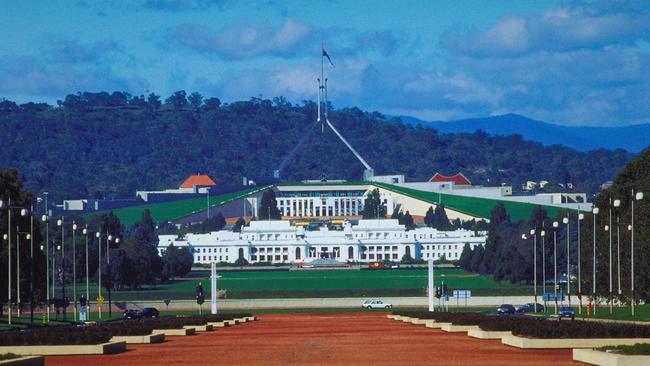
The ACT – the only jurisdiction to have endorsed the voice to parliament, with 60.8 per cent of residents voting Yes in a reversal of the national trend – has emerged as Australia’s experiment in progressive politics. But the reality is, Canberra’s demographics are unique – it is the only jurisdiction in the country capable of supporting such an experiment. While it may represent the political heart of the nation, Canberrans are not representative of the national mood.
‘Leading the nation’
ACT Chief Minister Andrew Barr told The Weekend Australian that one of his greatest achievements was “leading the nation on social and economic policy”. In addition to providing “continuous economic and employment growth,” Mr Barr said he had acted as “a national leader in reducing gender inequality, making significant progress in workplace gender equity, the gender pay gap, representation of women on boards and committees, and parliamentary representation”.
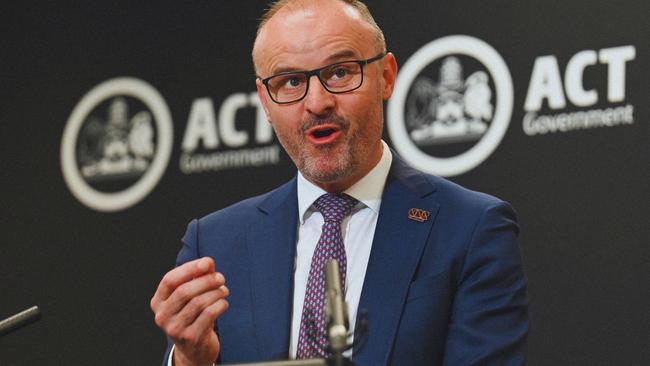
“Ensuring Canberra is proudly multicultural and is the most LGBTIQ+ welcoming and inclusive city in Australia. Becoming the first jurisdiction in Australia to instil a Reconciliation Day public holiday to recognise and celebrate First Nations cultures and achievements.” He also said the ACT was the first jurisdiction in Australia to embed a Wellbeing Framework in our budget process and “one of the first in the world”. These are not the usual political achievements trumpeted by other state or territory leaders, but this is the political strategy that has been proven to work in Canberra.
‘Peculiar’ territory
Liz Allen, a demographer and senior lecturer at the Australian National University, told The Weekend Australian the ACT was “demographically peculiar to the rest of the country”. “Canberra is divided into north and south siders, divided by a human-made lake (Lake Burley Griffin). South siders are on average older with fewer children, north siders are typically younger with children. This north versus south demographic divide reflects historical housing releases,” she said. “Much of Canberra’s peculiarity stems from the historically work-based migrant population. The Australian public service would pull people in their early working ages and they’d stay while they established their career and then return home interstate to have children.”
Dr Allen said that ACT residents, on average, had “high levels of education and in turn high incomes” but hidden poverty was “a significant problem”. She said public resources – including housing, school education and health – were geared towards the wealthy average, and those not who are doing so well tended to be forgotten. “This kind of hidden poverty tends to be associated with worse outcomes for those impacted because of the isolation,” she said.
“Federal and territory governments represent the largest employer group in the ACT, with much of the ACT connected to other institutions like defence or universities. Hospitality does a roaring trade in the ACT. “The place has a regional city vibe, with very few degrees of separation between residents. You should never talk ill of a person in public because the odds are those overhearing you will know them.” A number of key factors distinguish the ACT. First, it is the wealthiest jurisdiction in the country but also one of the hardest in which to live for those on low incomes.
High-income zone
ABS data shows the ACT has a median weekly household income of $2373 compared to a national median of $1746 per week. In terms of median personal income, the ACT personal income of $1203 per week compares to a national median of $805 per week. Yet despite their high incomes, Canberrans do not work the longest hours in the country. The proportion who work for more than 45 hours each week is 17.1 per cent compared to 17.9 per cent for the nation as a whole.
At the time of the 2021 census, the three Labor ACT seats of Canberra, Bean and Fenner were, in descending order, the top three federal electorates across Australia with the most number of households where mortgage payments were less than or equal to 30 per cent of household income at 83.4, 82.7 and 82 per cent respectively.
While this helps explain the “cushion” effect that Ms Lee referred to, it also means entering the property market is difficult. The mean residential dwelling price in the ACT is $947,900, the second highest in the nation behind NSW at $1,167,500 and followed by Victoria at $904,800.
The ACT Council of Social Service found in its 2023 cost-of-living report that Canberra continued to have the most expensive overall median rent prices and was the least affordable jurisdiction in the country for people on low incomes. It noted that, in the past five years, Canberrans had experienced “significant price increases for automotive fuel (37 per cent), transport (23 per cent), electricity (25 per cent), medical and hospital services (19 per cent), housing (21 per cent), education (20 per cent) and food (18 per cent)”.
The 2023 Anglicare Rental Affordability Snapshot found that on March 17 there was only one rental property in the ACT that was affordable for a couple with two children on the minimum wage, and just two rental properties that were affordable for a single person on the minimum wage.
Public service central
The second key feature that makes Canberra unique is its status as a public service city. As of May 2023, about 35 per cent of the workforce in the ACT was employed in the public sector, representing about 94,000 people out of a total workforce of 270,000. This leads the nation by a long stretch and compares to 27 per cent in the NT; 19 per cent in Tasmania; 16 per cent in Queensland; 15 per cent in South Australia; 13 per cent in NSW; 12 per cent in Western Australia; and 11 per cent in Victoria.
The last ACT Liberal chief minister, Kate Carnell, told The Weekend Australian there was a “level of truth” in ACT-based public servants voting for Labor to preserve their jobs – but she argued this was not an insurmountable obstacle for the current Liberal opposition as it looks to secure government at next October’s election. “The numbers of people who work in the SME sector or are self-employed are lower than it would be in lots of other places,” she said.
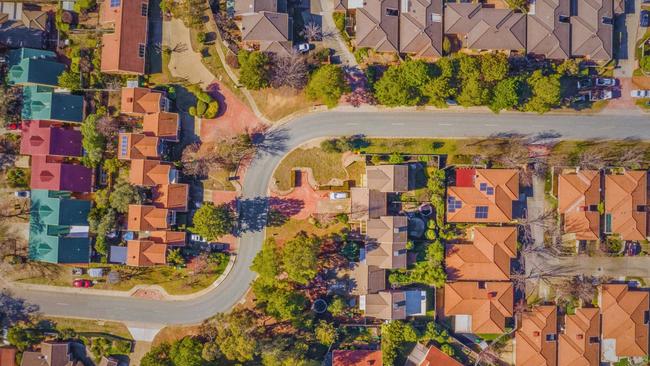
“The public sector is quite significant. That means that the politics of the ACT is centralist or just left of centre. That shows in the way the ACT votes federally as well.
“They don’t just say vote for Labor because I am a public servant. If they don’t believe the government is doing a good job for Canberra then, in my view, they will vote for an alternative and they did for me twice.”
However, Ms Carnell said she thought that “naturally Canberra will vote Labor”, describing it as “their comfort position”.
“What the Libs haven’t done is show an alternative government that really appeals to the people of Canberra. If you haven’t got an alternative that looks shiny and new, and can do the job better, you’ll just go back to your comfort zone.”
Education and religion
The third key feature peculiar to the ACT is the combination of high levels of educational attainment and lack of religious faith. Those in the ACT are well educated, reflecting the large numbers of people who are employed in the public sector or engaged to government departments and agencies as contractors. The 2021 census showed that 43 per cent of ACT residents (160,000 people) had at least a bachelor’s degree, compared to 26.3 per cent for the nation as a whole. Similarly, while the completion of year 10 served as the highest level of educational attainment for 10 per cent of the nation, this was true for only 6.1 per cent of ACT residents.
When it comes to religious faith, 43.5 per cent of Canberrans say they have no faith compared to a national result of 38.4 per cent. Only Tasmania and South Australia have a higher proportion of people with no religious affiliation.

Conservative mistakes
Ms Carnell said one of the mistakes the Liberals had made in recent years was to veer too closely to social conservatism. The results of the 2017 same-sex marriage postal plebiscite revealed the ACT was the jurisdiction with the largest Yes vote at 74 per cent – yet it was opposed by then Liberal leader Alistair Coe.
“The Libs need to do things that don’t align them with conservative politics, with socially conservative views,” Ms Carnell said.
“The way my government was elected twice was it was different – it was the Carnell Liberals. But it was a different brand of Liberalism. It was a brand that focused on getting the budget under control, but a range of the things we did in the social policy space were certainly not socially conservative.
“It’s just a different brand of Liberalism which is about supporting individuals to be the best they can be, making sure that policies we have in place are in the best interests of the community more broadly. But not necessarily socially conservative.”
Election looming
Next October, the Labor/Greens government in the ACT will endeavour to win its seventh straight victory, with Mr Barr telling The Weekend Australian a wide range of factors had contributed to Labor’s long-term success.
“We have a large and engaged membership base, well-established policy development capacity and proven grassroots campaigning capability,” the Chief Minister said. “We pride ourselves on being the most democratic and member-led branch of the Australian Labor Party.”
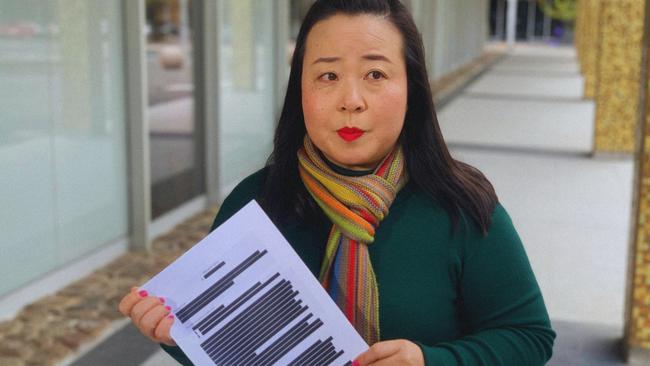
“If that had been the case, surely it wouldn’t have taken more than two decades to change government here,” she said. “I think there are a couple of factors that have made it difficult. One of them, of course, being the Hare-Clark system, and Labor forming a very tight-knit political alliance with the Greens.
“But I’m conscious that the Liberals need to make sure that we speak on behalf of the community on issues that matter to them. What we have been able to point out, especially in this term, is that this Labor/Greens government has the wrong priorities.”
Ms Lee said she would be running on health, education, safety, and law and order going into the next election, while Ms Carnell’s formula for success was to focus on how to make Canberra a better place to live.
She said it was important not to lose sight of the three Rs – roads, rates and rubbish.
Ms Carnell’s recommendation was for the opposition to focus on “all the things that aren’t really that crash hot”.
“I think they can win by pushing, by focusing on all the things that haven’t gone right … and ensuring that what they are promising or putting on the table isn’t ideological. It is about running the city properly.”


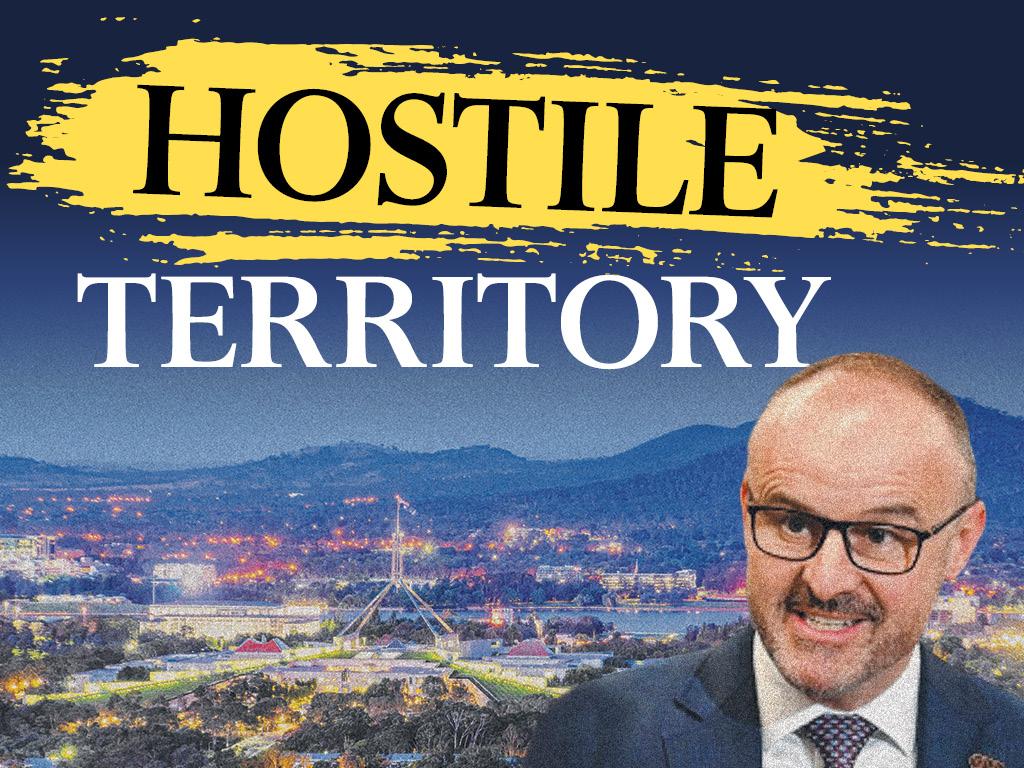
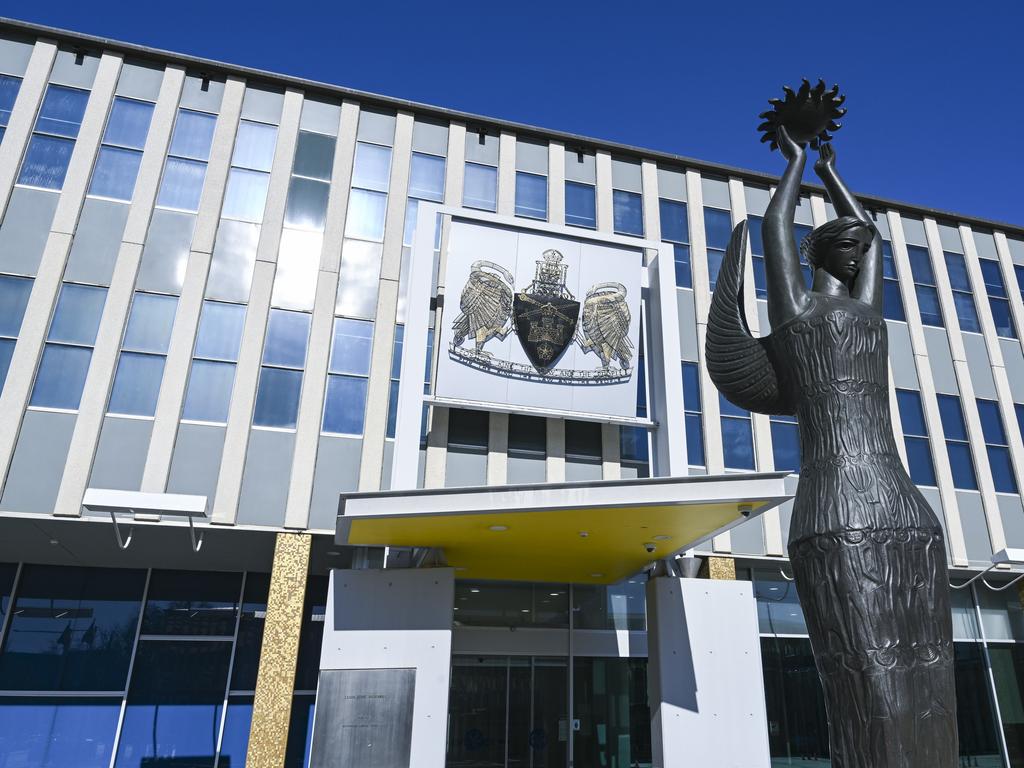
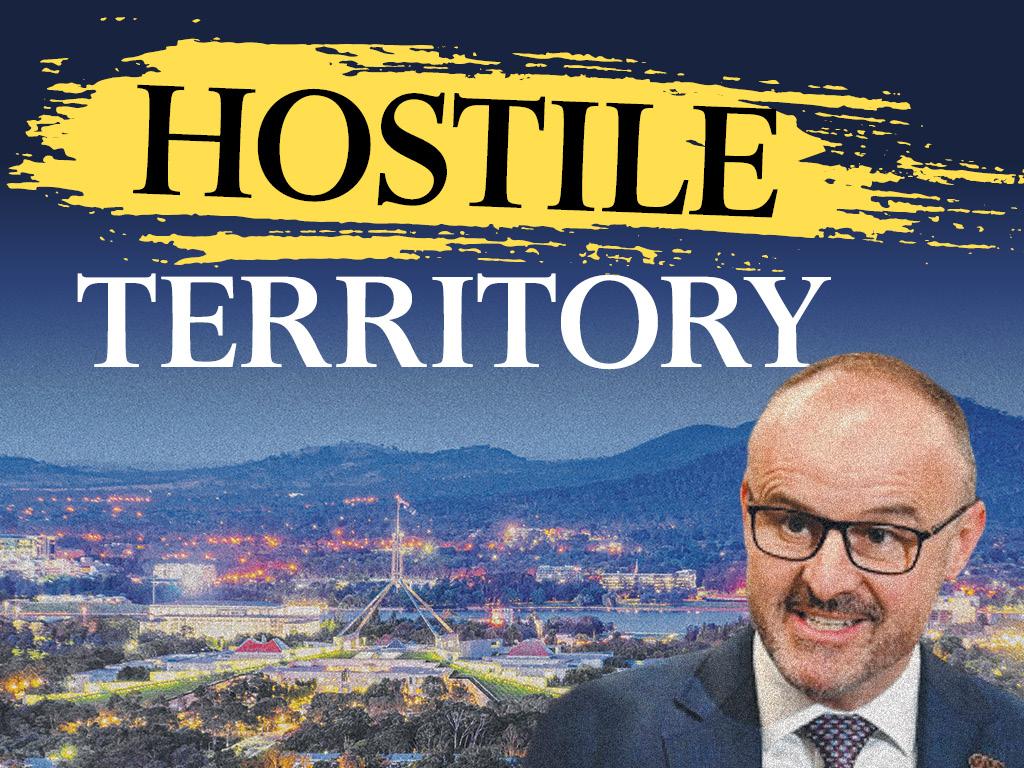
To join the conversation, please log in. Don't have an account? Register
Join the conversation, you are commenting as Logout